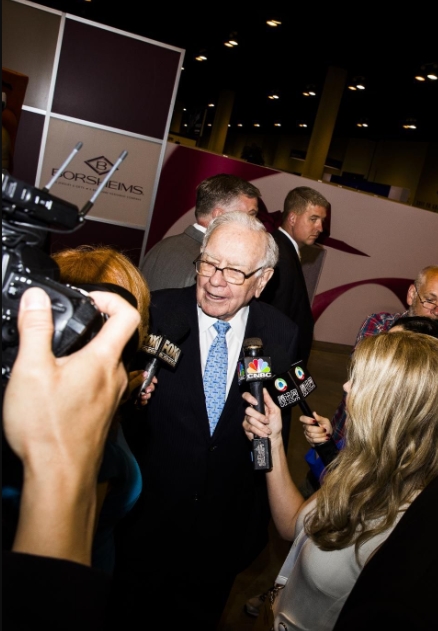
At the 2018 Annual Berkshire Hathaway Shareholders’ Meeting, Warren Buffett and his partner, Charlie Munger, discussed their conviction in long-term buy and hold as an investment technique and specifically discussed Wells Fargo, as well as well as their attitude to tech holdings, including Apple. Warren Buffett also shared his belief in the inefficiency of the U.S. healthcare system, and how the current U.S. trade position may be undesirable.
Long Term Buy and Hold
As Charlie Munger, Warren Buffett’s business partner stated at the 2018 Berkshire Annual Meeting, “When there’s nothing to do, Warren is very good at doing nothing.” Even though Berkshire Hathaway’s assets have increased significantly over time, requiring some changes to how they invest, they remain committed to long-term holding periods for their investments.
This means investing in companies, brands and managements they believe in for the long-term rather than making short-term trades. Buffett did note that they have reduced their position in Phillips 66, but the goal there was to have less than a 10% position to avoid various compliance issues. Buffett still has strong belief in Phillips 66.
Wells Fargo
In Buffett’s mind, recent admissions and penalties for bad behavior at Wells Fargo, proved the efficacy of incentives, and, unfortunately, in Buffett’s view, Wells Fargo had the wrong incentives. Buffett noted he had made some of his greatest investment during these sort of errors. He detailed specifically his investment in American Express in 1964 and in the insurance firm, GEICO, in 1976. In both cases the issues in question were cleaned up, and he predicts a similar outcome for Wells Fargo. Wells Fargo might be most likely to behave the best among financial firms in future, because they have been through these incidents. He mentioned he had a positive opinion of the Wells Fargo CEO, Timothy Sloan.
U.S. Healthcare
Buffett has strong views on the U.S. healthcare system, where he believes spending is getting out of hand, and higher costs are not necessarily delivering better outcomes for patients. He notes that 18% of U.S. GDP is spent on on medical costs, up from 5% in the 1970s. He observes that the U.S. was spending $170 per person in 1970 on healthcare, but it’s now over $10,000 per person each year, on average. Buffett refers to this level of U.S. healthcare spending, which he views as far too high, as a “tapeworm”.
The goal with Berkshire’s current partnership, with Amazon and JP Morgan is to help employees by lowering healthcare costs for a similar level of service. He expects to appoint a CEO for this effort shortly. He predicts that the resistance to this effort from the healthcare industry will be “unbelievable”. He received a flood of calls from other companies interested in joining after the announcement was made on the healthcare initiative.
However, Buffett believes that it will not easy, and that even though it’s an important initiative for him, he is not that optimistic for success because of the opposition he predicts he will see from within the healthcare industry. Charlie Munger stated he expects single-payer medicine to eventually come to the U.S. under a Democratic administration, but had no specific insight on timings.
Tech Stocks
Buffett spoke very positively about Apple, which Berkshire Hathaway now owns approximately 5% of. He mentioned that they would likely see their Apple position grow in size because of share repurchases, because they would not sell shares back to Apple and therefore, Berkshire’s position would grow as Apple’s share count declined. Buffett praised the quality of Apple’s products and the breadth of its ecosystem. He also mentioned that he held both Amazon and Google in high regard, but felt he had missed both companies as investments.
Warren Buffett mentioned that he likely would not purchase Microsoft stock because of his close relationship with Bill Gates, Microsoft’s founder, who is on the board of Berkshire. He worried that even though he would not trade on, or likely even receive, any inside information on Microsoft. Nonetheless, any buying or selling or Microsoft could be perceived to be the result of information from Gates, and he wanted to avoid any appearance of conflict.
U.S. Trade Policy
In 1970 exports and imports were 5% of GDP, now they have more than doubled, but there’s a gap today, with U.S. exports at 11% and imports at 14%. Over time, Buffett wouldn’t want that 3% gap between imports and exports to get too wide, because the gap is filled by “claim checks” on U.S. assets. Charlie Munger, stressed the virtue of the Chinese high savings rate as helping their growth.

